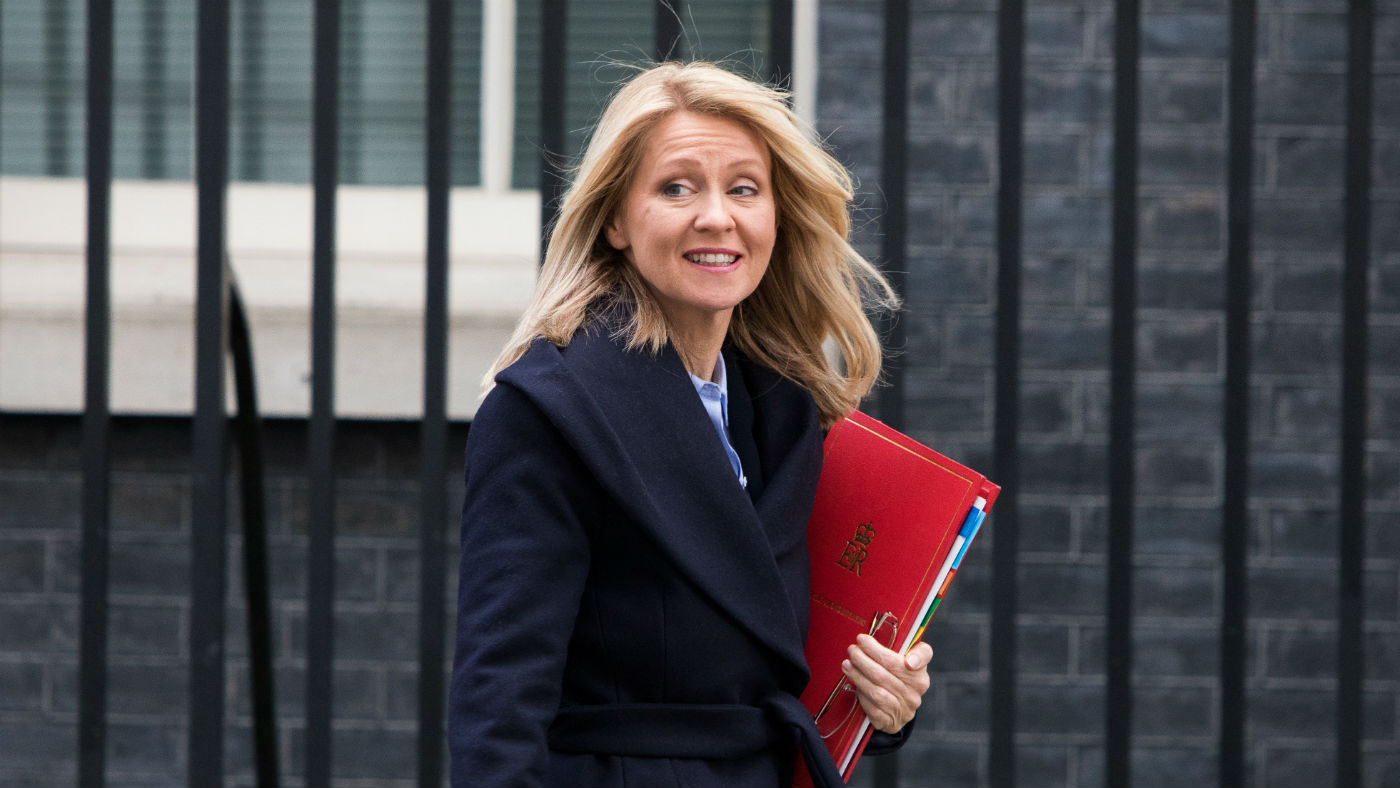Who is Esther McVey?
Controversial former work and pensions secretary is leading candidate to take over when PM steps aside

A free daily email with the biggest news stories of the day – and the best features from TheWeek.com
You are now subscribed
Your newsletter sign-up was successful
Speculation is rife about who will take over from Theresa May after the prime minister this week agreed to set a timetable for the election of her successor following next month’s Brexit vote in the Commons.
Although Home Secretary Sajid Javid and former foreign secretary Boris Johnson have been tipped to replace May when she steps down, a growing number of commentators believe former work and pensions minister Esther McVey could secure the top job, with the help of more pro-Brexit factions of the Conservative Party.
As Reuters reports, McVey resigned from the Cabinet in November “in protest at May’s exit deal with the European Union”.
The Week
Escape your echo chamber. Get the facts behind the news, plus analysis from multiple perspectives.

Sign up for The Week's Free Newsletters
From our morning news briefing to a weekly Good News Newsletter, get the best of The Week delivered directly to your inbox.
From our morning news briefing to a weekly Good News Newsletter, get the best of The Week delivered directly to your inbox.
Announcing her candidacy for the Tory leadership last week, the former television presenter told talkRADIO: “I have always said quite clearly that if I got enough support from my colleagues, yes, I would (run). Now people have come forward and I have got that support, so I will be going forward.”
McVey is a polarising figure, however.
The MP for Tatton “could appeal to voters across the spectrum, leading a government that would feel new, fresh and eye-catching”, says The Daily Telegraph’s Robert Taylor. Her “personal history enshrines social mobility, aspiration and the can-do spirit that Britain desperately needs”, he adds.
But the Daily Mirror’s Brian Reade decries her government record, describing her as the “feral lovechild of Thatcher and Tebbit” and claiming that a McVey premiership would “drive the poor to early graves”.
A free daily email with the biggest news stories of the day – and the best features from TheWeek.com
So, who is the real Esther McVey?
What did she do before politics?
Esther McVey was born in Liverpool in 1967 to young Irish Catholic parents. She spent the first two years of her life in foster care with the charity Barnardo’s before returning to her birth family.
McVey went on to graduate with a degree in law before becoming a graduate trainee with the BBC in 1991, The Sun reports. Her TV career also included stints as a broadcaster and journalist for Channel 4 and as a host on ITV breakfast show GMTV.
In the 2000s, McVey set up her own business, providing training for small and medium enterprises.
What has she done in government?
In 2010, McVey became the first and only Conservative MP on Merseyside since 1997, when she won the Wirral West seat.
By 2012, she had been appointed under-secretary of state for disabled people, and following a reshuffle in 2013, was then made minister of state for employment.
However, she was defeated by Labour candidate Margaret Greenwood by just over 400 votes at the 2015 general election. Following her defeat, McVey took up a post as chair of the British Transport Police Authority. She returned to Parliament two years later after winning the Tatton constituency, which had previously been held by George Osborne.
She was promoted to work and pensions secretary in early 2018, during which tenure she “staunchly defended her department’s troubled roll-out of universal credit” after being “forced to concede that some of those in receipt of universal credit, which rolls six benefits into one, will be worse off as a result”, The Guardian reports.
A staunch advocate of Brexit during the EU referendum, McVey quit the Cabinet last year in protest at the PM’s Brexit Withdrawal Agreement with the EU. Indeed, McVey has been described as the “most aggressive” opponent of the Bill, The Sun says.
In her resignation letter to May, she said: “Repeatedly you have said that we must regain control of our money, our borders and our laws and develop our own independent trade policy... I believed that we could still work collectively to honour the will of the British people and secure the right outcome for the future of our country.
“This deal fails to do this.”
What kind of PM would she make?
McVey appears to be pinning her hopes for leadership on her firm pro-Brexit stance. She told talkRADIO last week that her party needs a leader who “believes in Brexit“ and has “belief in the opportunities” it could bring, Sky News reports.
This stance has won her the support of a number of fellow Tories. In an article for The Daily Telegraph, MPs Ben Bradley and Gary Streeter write that McVey “has a clear vision of the kind of country she wants to see and the platform which can transform the Conservative Party into a true, meritocratic force for good”.
Telegraph journalist Taylor adds that those who doubt her credentials should remember that “people doubted Churchill and Thatcher”, as “neither had a record of unblemished success”.
“But what we must look for in a potential prime minister is ideas, belief and the energy to take the country through this crisis, and lead us to a bright, global future,” Taylor argues.
However, to many others, McVey is a worst-case-scenario candidate. The Mirror’s Reade refers to her as “Slasher McVile”, and claims she has “devoted her Westminster career to demonising and impoverishing the poor and disabled”.
“She said the rise of foodbanks was ‘positive’ and that there was ‘no robust evidence’ that linked the soaring take-up of them to welfare cuts,” he notes.